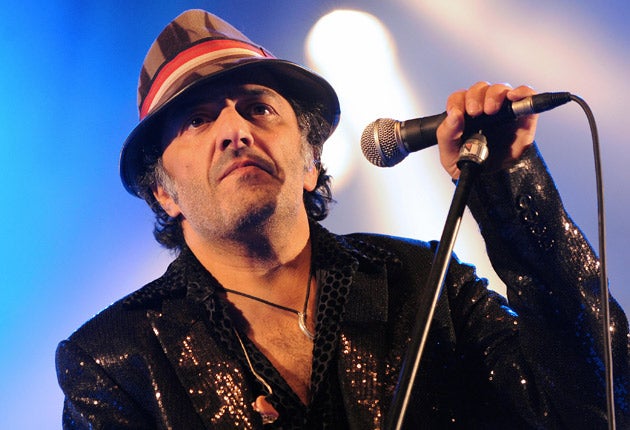
Your support helps us to tell the story
From reproductive rights to climate change to Big Tech, The Independent is on the ground when the story is developing. Whether it's investigating the financials of Elon Musk's pro-Trump PAC or producing our latest documentary, 'The A Word', which shines a light on the American women fighting for reproductive rights, we know how important it is to parse out the facts from the messaging.
At such a critical moment in US history, we need reporters on the ground. Your donation allows us to keep sending journalists to speak to both sides of the story.
The Independent is trusted by Americans across the entire political spectrum. And unlike many other quality news outlets, we choose not to lock Americans out of our reporting and analysis with paywalls. We believe quality journalism should be available to everyone, paid for by those who can afford it.
Your support makes all the difference.You can only imagine Rachid Taha's reaction if he were to know that his early career as a DJ mixing Western and Eastern records in a Parisian nightclub in the 70s would lead him eventually to the throbbing makeshift dancefloor of the Royal Festival Hall's first two rows three decades later. It would probably be a cause of some jubilation for a man who's prided himself on his ability to cross geographical and stylistic boundaries.
It's this ability to bend genres almost past the point of recognisability that has also contributed to the presence of an audience who are as eclectic as tonight's music itself. Beginning with the electro-tinged "Ila Liqa", from this year's Bonjour, it is only a few songs further in, during "Mokhtar" from the same album, when the pressures of one context – the smart, seated environs of tonight's venue – give way to the raw, percussive movements which drive Taha's unique combination of such disparate genres as rock, rai and worldbeat, and a crowd gathers at the front of the stage. As the evening continues, it is augmented with a new swell of dancers drawn from the audience with each song, until soon the entire Festival Hall seems to be on its feet and under the spell.
Wearing a purple shirt unbuttoned daringly low for someone of his considerable years, Taha's trademark Stetson is initially pushed down over his eyes in such a way as to render him virtually faceless as his six-piece band get into their stride. Over the course of the evening though, he loses and regains the hat on innumerable instances, and the object of his tight-fitting outfit becomes clear; it exists, it seems, to showcase his snaking hips and twisted torso to hundreds of smartly dressed middle-aged women who can barely express their excitement even with all the hip-shaking they can muster.
With material from earlier albums Tékitoi and Diwan fitting in seamlessly, the internationally recognisable language of dance is a practical necessity for a man whose occasional spoken interludes demonstrate a comically loose grasp of English. Backed by a band consisting of the familiar set-up of guitar, keyboards, drums and bass, with the addition of the mandolute, the North African instrument which provides the link to Taha's Algerian upbringing, it's a pity that the political undertones of Taha's output are lost in the whirlwind of convulsive rock and rai fusion.
Join our commenting forum
Join thought-provoking conversations, follow other Independent readers and see their replies
0Comments